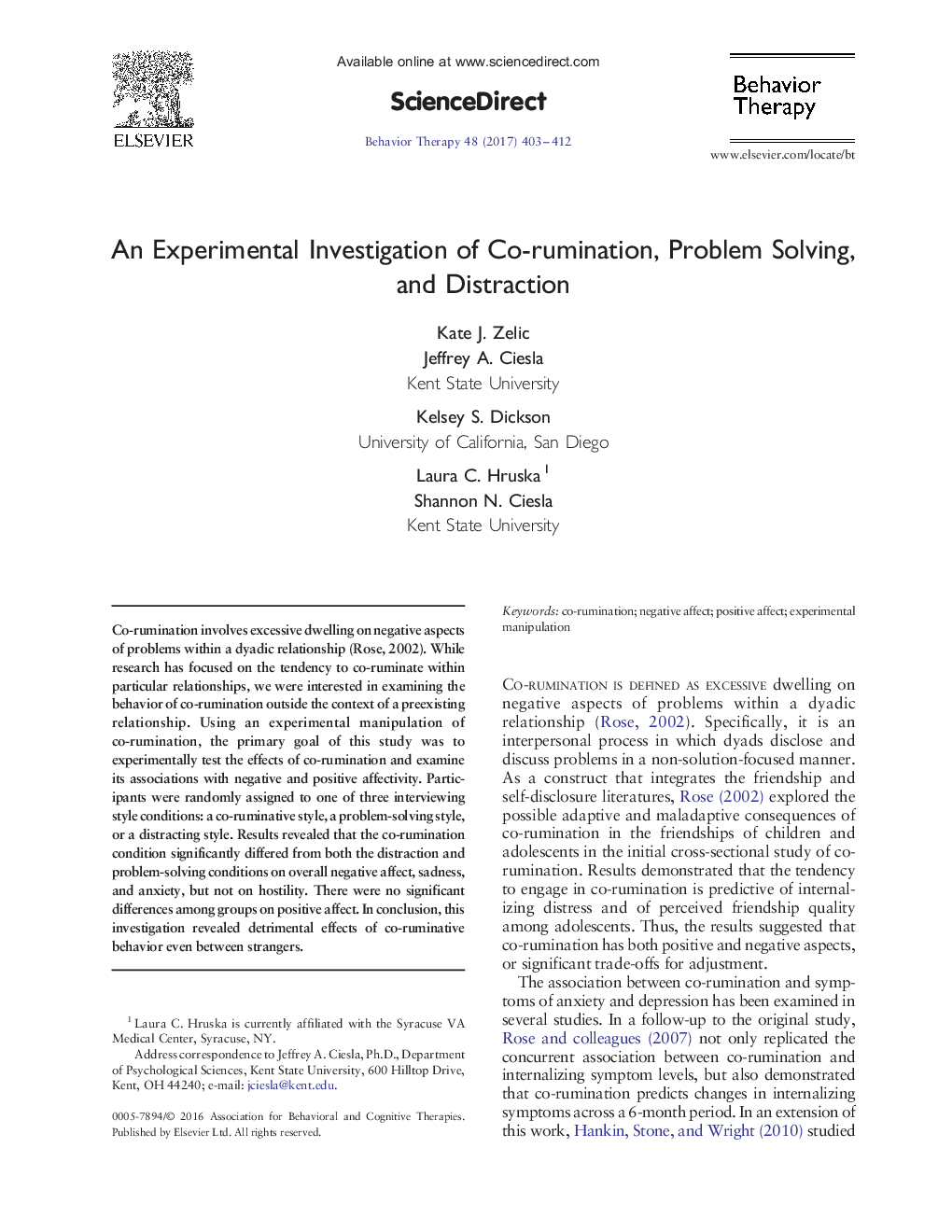| Article ID | Journal | Published Year | Pages | File Type |
|---|---|---|---|---|
| 5037991 | Behavior Therapy | 2017 | 10 Pages |
â¢Co-rumination significantly differed from distraction and problem solving conditions.â¢Co-rumination differed on negative affect, sadness, and anxiety, but not hostility.â¢There were no significant differences amongst groups on positive affect.
Co-rumination involves excessive dwelling on negative aspects of problems within a dyadic relationship (Rose, 2002). While research has focused on the tendency to co-ruminate within particular relationships, we were interested in examining the behavior of co-rumination outside the context of a preexisting relationship. Using an experimental manipulation of co-rumination, the primary goal of this study was to experimentally test the effects of co-rumination and examine its associations with negative and positive affectivity. Participants were randomly assigned to one of three interviewing style conditions: a co-ruminative style, a problem-solving style, or a distracting style. Results revealed that the co-rumination condition significantly differed from both the distraction and problem-solving conditions on overall negative affect, sadness, and anxiety, but not on hostility. There were no significant differences among groups on positive affect. In conclusion, this investigation revealed detrimental effects of co-ruminative behavior even between strangers.
